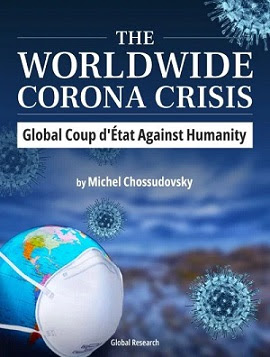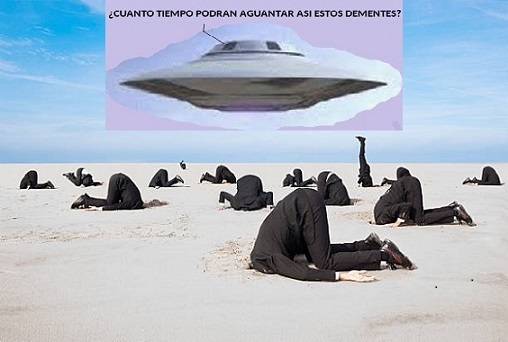Reports of Injuries, Deaths After COVID Vaccines Climb Steadily, as FDA, CDC Sign Off on Third Shot for Immunocompromised
https://childrenshealthdefense.org/defender/vaers-cdc-injuries-deaths-covid-vaccines-fda-third-shot-immunocompromised/
VAERS data released Friday by the CDC showed a total of 571,831 reports of adverse events from all age groups following COVID vaccines, including 12,791 deaths and 77,490 serious injuries between Dec. 14, 2020 and Aug. 6, 2021.
Excluding “foreign reports” filed in VAERS, 451,049 adverse events, including 5,859 deaths and 36,871 serious injuries, were reported in the U.S. Of the 5,859 U.S. deaths reported as of Aug. 6, 13% occurred within 24 hours of vaccination, 19% occurred within 48 hours of vaccination and 33% occurred in people who experienced an onset of symptoms within 48 hours of being vaccinated.
In the U.S., 349.8 million COVID vaccine doses had been administered as of Aug. 6. This includes: 140 million doses of Moderna’s vaccine, 196 million doses of Pfizer and 13 million doses of the Johnson & Johnson (J&J) COVID vaccine.
The data comes directly from reports submitted to the Vaccine Adverse Event Reporting System (VAERS), the primary government-funded system for reporting adverse vaccine reactions in the U.S.
Every Friday, VAERS makes public all vaccine injury reports received as of a specified date, usually about a week prior to the release date. Reports submitted to VAERS require further investigation before a causal relationship can be confirmed.
This week’s U.S. data for 12- to 17-year-olds show:
- 16,408 total adverse events, including 983 rated as serious and 18 reported deaths. Two of the eighteen deaths were suicides.
The most recent reported deaths include a 15-year-old boy (VAERS I.D. 1498080) who previously had COVID, was diagnosed with cardiomyopathy in May 2021 and died four days after receiving his second dose of Pfizer’s vaccine on June 18, when he collapsed on the soccer field and went into ventricular tachycardia; and a 13-year-old girl (VAERS I.D. 1505250) who died after suffering a heart condition after receiving her first dose of Pfizer.
- Other deaths include two 13-year-old boys (VAERS I.D. 1406840 and 1431289) who died two days after receiving a Pfizer vaccine, a 13-year-old boy who died after receiving Moderna (VAERS I.D. 1463061), three 15-year-olds (VAERS I.D. 1187918, 1382906 and 1242573), five 16-year-olds (VAERS I.D. 1420630, 1466009, 1225942, 1475434, and 1386841) and three 17-year-olds (VAERS I.D. 1199455, 1388042 and 1420762).
- 2,424 reports of anaphylaxis among 12- to 17-year-olds with 99% of cases
attributed to Pfizer’s vaccine. - 419 reports of myocarditis and pericarditis (heart inflammation) with 414 cases attributed to Pfizer’s vaccine.
- 81 reports of blood clotting disorders, with all cases attributed to Pfizer.
This week’s total U.S. VAERS data, from Dec. 14, 2020 to Aug. 6, 2021, for all age groups combined, show:
- 21% of deaths were related to cardiac disorders.
- 54% of those who died were male, 43% were female and the remaining death reports did not include gender of the deceased.
- The average age of death was 73.1.
- As of Aug 6., 2,695 pregnant women reported adverse events related to COVID vaccines, including 931 reports of miscarriage or premature birth.
- Of the 2,585 cases of Bell’s Palsy reported, 50% were attributed to Pfizer vaccinations, 43% to Moderna and 6% to J&J.
- 510 reports of Guillain-Barré Syndrome, with 40% of cases attributed to Pfizer, 34% to Moderna and 25% to J&J.
- 123,496 reports of anaphylaxis with 45% of cases attributed to Pfizer’s vaccine, 47% to Moderna and 8% to J&J.
- 8,218 reports of blood clotting disorders. Of those, 3,428 reports were attributed to Pfizer, 3,510 reports to Moderna and 1,695 reports to J&J.
- 2,076 cases of myocarditis and pericarditis with 1,309 cases attributed to Pfizer, 690 cases to Moderna and 71 cases to J&J’s COVID vaccine.
FDA authorizes extra vaccine doses for immunocompromised patients
The U.S. Food and Drug Administration (FDA) on Aug. 12 authorized a third dose of Pfizer-BioNTech and Moderna COVID vaccines for people with compromised immune systems.
The CDC also gave final approval to the third dose, following the Aug. 13 unanimous recommendation of the agency’s Advisory Committee on Immunization Practices (ACIP).
As The Defender reported Aug. 13, neither vaccine has yet received full FDA approval, and neither has completed late-stage clinical trials proving a third dose will boost immunity or work against COVID variants.
The FDA’s amended Emergency Use Authorization allows people who have had an organ transplant, or those with a similar level of weakened immune system, to get an extra COVID vaccine dose. The J&J vaccine was not included because there was not sufficient data on boosters, according to the agency.
The FDA’s decision “allows doctors to boost immunity in certain immunocompromised individuals who need extra protection from COVID19,” Dr. Janet Woodcock, FDA acting commissioner, tweeted Aug. 12.
“Others who are fully vaccinated are adequately protected & do not need an additional dose of COVID-19 vaccine at this time,” Woodcock tweeted.
The vulnerable group of patients make up less than 3% of U.S. adults, according to CDC Director Dr. Rochelle Walensky.
Heart inflammation after COVID vaccines more common than CDC claims, new research shows U.S. public health officials claim cases of myocarditis and pericarditis following COVID vaccination are rare — but new research published online in the Journal of American Medical Association (JAMA) shows they may happen more often than reported.
Post-vaccine myocarditis and pericarditis also appear to represent two “distinct syndromes,” Dr. George Diaz, with the Providence Regional Medical Center Everett, told Medscape Cardiology.
Diaz and colleagues reviewed 2,000,287 electronic medical records (EMR) of people who received at least one COVID vaccination. The records, obtained from 40 hospitals in Washington, Oregon, Montana and California, showed 20 people had vaccine-related myocarditis (1.0 per 100,000) and 37 had pericarditis (1.8 per 100,000).
A recent CDC report, based on VAERS data, suggested an incidence of myocarditis of about 4.8 cases per 1 million following receipt of an mRNA COVID vaccine.
The new JAMA study showed a “similar pattern [to the CDC study], although at higher incidence [of myocarditis and pericarditis] after vaccination, suggesting vaccine adverse event under-reporting.”
The JAMA report also stated: “Additionally, pericarditis may be more common than myocarditis among older patients.”
“Our study resulted in higher numbers of cases probably because we searched the EMR, and [also because] VAERS requires doctors to report suspected cases voluntarily,” Diaz told Medscape.
The researchers calculated the average monthly number of cases of myocarditis or pericarditis during the pre-vaccine period of January 2019 through January 2021 was 16.9 compared with 27.3 during the vaccine period of February through May 2021. The mean numbers of pericarditis cases during the same periods were 49.1 and 78.8.
The authors said limitations of their analysis include potential missed cases outside care settings and missed diagnoses of myocarditis or pericarditis, which would underestimate the incidence, as well as inaccurate EMR vaccination information.
Mom of 14-year-old who developed myocarditis after Pfizer vaccine no longer trusts public health officials
In an exclusive interview last week with The Defender, Emily Jo said before her son, Aiden, got his first dose of Pfizer’s vaccine, she was led to believe his chance of suffering an adverse reaction was “one in a million.”
Aiden, a 14-year-old from Georgia, had no history of COVID or pre-existing conditions, except for asthma. On June 10, several days after his second Pfizer shot, Aiden woke his mother up at 4:30 a.m. because his chest hurt and he couldn’t breathe.
Jo said she was aware of the potential side effect of heart inflammation, but she believed the CDC, which said the reaction was very rare and mild. “What they didn’t explain is that mild means hospital care and follow-up care indefinitely,” Jo said.
“The biggest problem is they [CDC] are not explaining what mild myocarditis means,” Jo said. “Aiden’s cardiologist told us no case of myocarditis is ‘mild.’ That’s like saying a heart attack is mild,” she said the cardiologist told her.
Jo said her son tires easily and his recovery will be a long process. She said all her kids are fully vaccinated and she was one of the most trusting advocates of the CDC and American Academy of Pediatrics — until her son experienced his vaccine injury.


























































































































































































































































































































































































































































